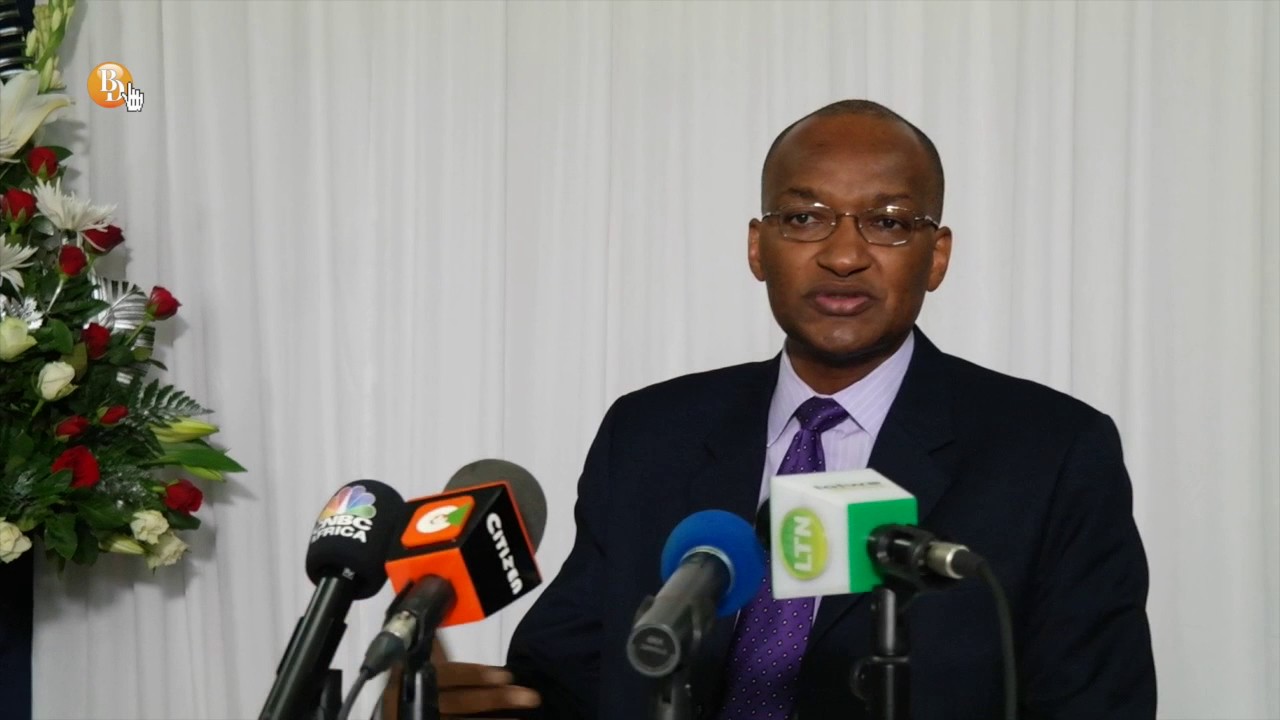The cost of loan borrowing is set to come down after the Monetary Policy Committee (MPC) cut the Central Bank Rate (CBR) to 9.50% from 10.0% for the first time since September 2016. At 9.5%, the CBR is also at the lowest level since May 2015.
The MPC said inflation expectations were well anchored within the Government target range, adding there is increased optimism for growth prospects in the economy, and that economic output was below its potential level.
“Therefore, it concluded that there was scope for easing its monetary policy stance in order to support economic activity. Consequently, while noting the risk of perverse outcomes, the Committee decided to
reduce the Central Bank Rate (CBR) to 9.50 percent from 10.00 percent. The MPC will closely monitor the impact of this change in its policy stance. Other developments in the domestic and global economy will also be observed, and the MPC stands ready to take additional measures as necessary,” Central Bank Governor Patrick Njoroge, who chairs the committee, said in a statement.
However, it could be too early for Kenyans, who have been starved of credit by commercial banks to celebrate the signal rate reduction since lenders are unlikely to change their stance regarding who can access loan facilities as the MPC did not give any indication on how soon a change in the law on interest rate caps would be introduced.
The Banking (Amendment) Act, 2016, which came into force on September 14 the same year, caps loan charges at four percentage points above the CBR and requires lenders to pay interest of at least 70% of the CBR on term deposits.
This has heavily eaten into banks’ earnings resulting in loan access restrictions for small and medium enterprises and other “high risk” borrowers.
Its amendment is, however, one of the conditions given by the International Monetary Fund (IMF) if Kenya is to continue accessing the US$1.5 billion (Ksh 152 billion) precautionary facility, which was recently extended for six months. President Uhuru Kenyatta, who reluctantly signed the law, has agreed to its review by September this year.
Monday’s meeting was held against a backdrop of sustained macroeconomic stability, improved weather conditions, increased optimism on the economic growth prospects, improvement in the business environment, and the continued strengthening of the global economy.
According to the MPC, month-on-month overall inflation fell to 4.5% in February 2018 from 4.8% in January 2018, thereby remaining within the Government target range.
“This decline reflected lower food prices particularly for Irish potatoes, cabbages, and sugar. The decrease in food prices outweighed the increase in fuel prices as a result of the rise in international oil prices. Non-food-non-fuel (NFNF) inflation remained below 5 percent indicating that demand-driven inflationary pressures are muted. Overall inflation is expected to be within the Government target range in the near term mainly due to expectations of contained food prices following improved weather conditions,” Njoroge said.
He added the foreign exchange market remains stable supported by a narrower current account deficit and improved investor confidence in the economy. The external current account deficit narrowed to 6.1% of GDP in the 12 months to January 2018 from 6.4% in 2017 reflecting strong performance in tea and horticultural exports, diaspora remittances, and tourism receipts.
The deficit is expected to narrow further to 5.4 percent of GDP in 2018 supported by continued growth in tea and horticulture exports, resilient diaspora remittances, and continued growth in tourism receipts. Additionally, the impact of higher international oil prices in 2018 is expected to be moderated by lower food and SGR-related imports.
According to Njoroge, the CBK foreign exchange reserves are at an all-time high of USD8,832 million (5.9 months of import cover), up from USD7,089 million (4.7 months of import cover) in January 2018, and continue to provide an adequate buffer against short term shocks in the foreign exchange market.
The recently extended precautionary arrangement with the International Monetary Fund equivalent to USD989.8 million, will provide an additional buffer against exogenous shocks.
Private sector credit grew by 2.1% in the 12 months to February 2018, slightly lower than the 2.4% in December 2017. The slowdown in credit growth was largely due to substantial loan repayments in the transport and communication sector. Nevertheless, lending to the manufacturing, real estate, and trade sectors remained relatively strong, growing by 13.1%, 8.3%, and 5.9%, respectively.
The banking sector remains stable and resilient. Average commercial banks’ liquidity and capital adequacy ratios stood at 44.6% and 18.5%, respectively, in February 2018. The ratio of gross non-performing loans (NPLs) to gross loans increased to 11.4% in February 2018 from 10.6% in December 2017 largely due to increased NPLs in the manufacturing sector and loan repayments in the transport and communications sector.
READ: Citizen TV news anchor tops Nairobi deputy governor poll
“The MPC Private Sector Market Perception Survey conducted in March 2018 showed that inflation was expected to decline in the near term and reported stronger growth expectations for 2018. The Survey also showed almost unanimous optimism by the private sector for the domestic economic prospects in 2018. Respondents attributed their optimism to a stable macroeconomic environment, favourable weather conditions, improved business environment and investor confidence, continued public investment in infrastructure, expected direct flights to the U.S., and political stability,” said Njoroge.
He added global growth recovery is expected to continue in 2018, but uncertainties remain particularly with regard to the recent U.S. trade policy developments, the post-Brexit resolution, and the pace of monetary policy normalisation in advanced economies.













Leave a comment